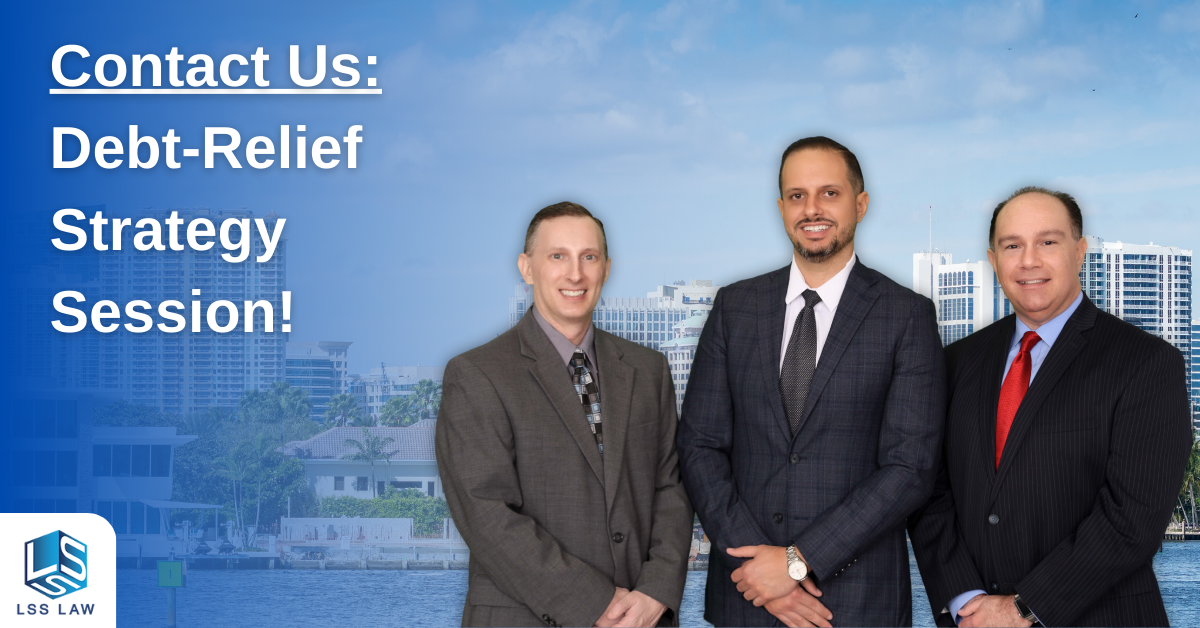Facing bankruptcy can be a daunting experience, but it’s important to remember that it’s not the end of the world. In fact, it can be a fresh start and a chance to rebuild your financial future. One common concern among those who have filed for bankruptcy is whether they can still buy a house after going through the process. The answer is yes, you can! In this article, we will explore the different options available to you and explain how to successfully navigate the journey toward homeownership after bankruptcy.
Understanding the Different Types of Bankruptcy
Before diving into the specifics of buying a house after bankruptcy, it’s important to understand the differences between the two main types of personal bankruptcy: Chapter 7 and Chapter 13.
Chapter 7 Bankruptcy
Chapter 7 bankruptcy, also known as liquidation bankruptcy, involves selling off non-exempt assets to pay off creditors. This type of bankruptcy typically lasts around four to six months and is more suitable for individuals with limited income and assets. Once the process is complete, most unsecured debts are discharged, giving you a clean slate to start rebuilding your credit.
Chapter 13 Bankruptcy
Chapter 13 bankruptcy, on the other hand, is designed for individuals with regular income who can afford to pay back a portion of their debts through a repayment plan. This type of bankruptcy allows you to keep your assets while you make scheduled payments to your creditors over a period of three to five years. After the repayment plan is complete, any remaining eligible debts are discharged.
The Waiting Game: Understanding Waiting Periods for Home Loans

One of the most significant factors affecting your ability to buy a house after bankruptcy is the waiting period imposed by mortgage lenders. Different types of loans have different waiting periods, which are determined by the type of bankruptcy you filed and the specific loan program.
Conventional Loans
For conventional loans, the waiting period after a Chapter 7 bankruptcy is typically four years from the date of discharge or dismissal. In the case of Chapter 13 bankruptcy, the waiting period is four years after dismissal or two years after discharge.
FHA and VA Loans
Government-backed loans like FHA and VA loans have more lenient waiting periods. For FHA loans, the waiting period is two years after a Chapter 7 bankruptcy discharge and one year after the start of a Chapter 13 repayment plan, with court approval. For VA loans, the waiting period is two years after a Chapter 7 discharge and one year after the start of a Chapter 13 repayment plan.
USDA Loans
USDA loans, which are designed for rural homebuyers, have a three-year waiting period after a Chapter 7 bankruptcy discharge and one year after the start of a Chapter 13 repayment plan.
Rebuilding Your Credit After Bankruptcy

Your credit score plays a crucial role in determining your eligibility for a mortgage loan. After filing for bankruptcy, it’s important to take steps to rebuild your credit and demonstrate financial responsibility to potential lenders. Some ways to rebuild your credit include:
- Obtaining a secured credit card and using it responsibly
- Paying all your bills on time
- Avoiding new debt or high credit utilization
- Regularly checking your credit report for errors and disputing any inaccuracies
By following these steps and maintaining a positive credit history, you’ll be in a better position to secure a mortgage loan when the time comes.
The Role of Mortgage Loan Programs in Buying a House After Bankruptcy
Various mortgage loan programs can make it easier for individuals who have filed for bankruptcy to buy a house. These programs have different requirements and waiting periods, as discussed earlier. Let’s take a closer look at some of these mortgage loans and how they can help you achieve your goal of homeownership after bankruptcy.
FHA Loans
FHA loans, backed by the Federal Housing Administration, are a popular option for those who have filed for bankruptcy due to their lower credit requirements and shorter waiting periods. With a minimum credit score of 580, you can qualify for an FHA loan with a down payment as low as 3.5%. For those with a credit score between 500 and 579, a 10% down payment is required. FHA loans also have more lenient debt-to-income ratio requirements, making it easier for individuals with lower income or higher debt levels to qualify.
VA Loans
VA loans, backed by the Department of Veterans Affairs, are available to eligible veterans, active-duty service members, and their spouses. These loans have no down payment requirement and no mortgage insurance, making them an attractive option for those who have filed for bankruptcy. VA loans have a two-year waiting period after a Chapter 7 bankruptcy discharge and a one-year waiting period after the start of a Chapter 13 repayment plan.
USDA Loans
USDA loans, backed by the United States Department of Agriculture, are designed for rural homebuyers with low to moderate income. USDA loans require no down payment and have lower mortgage insurance premiums than FHA loans. As mentioned earlier, the waiting period for a USDA loan is three years after a Chapter 7 bankruptcy discharge and one year after the start of a Chapter 13 repayment plan.
Extenuating Circumstances: Can They Shorten the Waiting Period?
In some cases, extenuating circumstances may allow you to shorten the waiting period for obtaining a mortgage loan after bankruptcy. Extenuating circumstances are events beyond your control that caused a significant and prolonged decrease in income or increase in financial obligations, leading to bankruptcy. Examples of extenuating circumstances include job loss, medical emergencies, or natural disasters.
To qualify for a reduced waiting period due to extenuating circumstances, you must provide documentation that supports your claim and demonstrate that you have since recovered financially. Mortgage lenders will review your case on an individual basis and may require additional information or documentation before making a decision.
Working with Real Estate Agents and Bankruptcy Attorneys
Navigating the process of buying a house after bankruptcy can be complex and challenging. That’s why it’s essential to work with experienced professionals who can guide you through the process and help you make informed decisions. Real estate agents can help you find suitable properties and negotiate the best deal, while bankruptcy attorneys can provide valuable legal advice and ensure that you meet all the necessary requirements for obtaining a mortgage loan after bankruptcy.
By working with a team of knowledgeable professionals, you can increase your chances of successfully buying a house after bankruptcy and start building a brighter financial future.
Improving Your Financial Situation After Bankruptcy
After filing bankruptcy, it’s essential to take steps to improve your financial situation and rebuild your credit. This will not only increase your chances of obtaining a mortgage loan but also help you secure better interest rates and loan terms. Here are some strategies to consider:
Establish Credit
One of the first steps in rebuilding your credit after bankruptcy is to establish new credit. This can be done by obtaining a secured credit card, which requires a deposit that serves as your credit limit. By making on-time payments and keeping your balance low, you can demonstrate responsible credit use and improve your credit score over time.
Pay All Your Bills on Time
Your payment history makes up a significant portion of your credit score, so it’s crucial to pay all your bills on time. This includes not only credit obligations but also rent, utilities, and other monthly expenses. Consistently making on-time payments can help rebuild your credit history and improve your chances of obtaining a mortgage loan.
Monitor Your Credit Reports
Regularly reviewing your credit reports can help you identify any errors or discrepancies that may be negatively impacting your credit score. You can request a free credit report from each of the three major credit bureaus (Equifax, Experian, and TransUnion) once a year. If you find any errors, dispute them with the credit bureau to have them corrected.
Reduce Your Debt-to-Income Ratio
Your debt-to-income (DTI) ratio is another factor that mortgage lenders consider when evaluating your loan application. To improve your DTI ratio, focus on paying down high-interest debt, such as credit cards, and avoid taking on new debt. This can help demonstrate to lenders that you are financially responsible and capable of managing a mortgage payment.
Preparing for the Mortgage Application Process After Bankruptcy
When you’re ready to apply for a mortgage loan after bankruptcy, there are a few steps you can take to improve your chances of success:
- Save for a Down Payment: A larger down payment can help compensate for a lower credit score and demonstrate to lenders that you are financially responsible.
- Gather Documentation: Mortgage lenders may require additional documentation from borrowers who have filed for bankruptcy, such as proof of income, tax returns, and bankruptcy discharge paperwork. Be prepared to provide these documents when applying for a mortgage loan.
- Shop Around for the Best Loan Terms: Different mortgage lenders may have different requirements and loan terms for borrowers who have filed for bankruptcy. Be sure to shop around and compare multiple lenders to find the best fit for your situation.
- Consider Working with a Mortgage Broker: A mortgage broker can help you navigate the mortgage application process and find the best loan options for your specific needs. They can also provide valuable guidance on how to improve your credit and financial situation after bankruptcy.
By following these steps and working with experienced professionals, you can improve your chances of successfully obtaining a mortgage loan after bankruptcy and achieving your goal of homeownership.
Utilizing Secured Credit Cards to Rebuild Credit After Bankruptcy
One effective strategy to rebuild your credit after bankruptcy is to use a secured credit card. A secured credit card requires you to make a deposit, which serves as collateral and determines your credit limit. By making on-time payments and keeping your balance low, you can demonstrate responsible credit use and improve your credit score over time.
Secured credit cards are often easier to obtain than traditional credit cards, making them an excellent option for individuals who have filed for bankruptcy. When choosing a secured credit card, look for one with low fees and a reputable issuer that reports your payment history to all three major credit bureaus (Experian, Equifax, and TransUnion). As your credit score improves, you may be able to transition to an unsecured credit card and continue building a positive credit history.
Exploring Personal Loans, Car Loans, and Other Credit Opportunities
In addition to secured credit cards, you can explore other credit opportunities to rebuild your credit after bankruptcy. Personal loans and car loans can help you establish a diverse credit history and demonstrate your ability to manage various types of credit obligations.
When considering a personal loan or car loan after bankruptcy, be prepared for higher interest rates and stricter lending requirements. It’s essential to shop around and compare loan offers to find the most favorable terms for your financial situation. Additionally, make sure you can afford the monthly payments and avoid taking on new debt that could jeopardize your financial stability.
As you establish a positive payment history with these loans, your credit score will improve, making it easier to qualify for better loan terms and interest rates in the future. By responsibly managing new credit obligations, you can rebuild your credit and increase your chances of securing a mortgage loan after bankruptcy.
Frequently Asked Questions
How long do I have to wait after bankruptcy to apply for a mortgage?
The waiting period depends on the type of bankruptcy you filed and the type of loan you’re seeking. For a conventional loan, you’ll need to wait at least 4 years after a Chapter 7 discharge or dismissal, and 2 years after a Chapter 13 discharge or 4 years after dismissal. FHA and VA loans have shorter waiting periods, typically 2 years after a Chapter 7 discharge and 1 year into a Chapter 13 repayment plan.
Can I qualify for a mortgage with a lower credit score after bankruptcy?
Yes, some mortgage programs, such as FHA loans, have more lenient credit score requirements, making it possible for borrowers with lower credit scores to qualify. However, you may face higher interest rates and more stringent lending requirements.
What can I do to improve my chances of getting a mortgage after bankruptcy?
Rebuilding your credit is crucial. You can do this by establishing new credit through secured credit cards, personal loans, and car loans, making on-time payments, and keeping your debt-to-income ratio low. Also, maintain a stable employment history and save for a down payment.
Can I use a co-signer to help me qualify for a mortgage after bankruptcy?
Yes, a co-signer with a strong credit history and stable income can help you qualify for a mortgage. However, the co-signer assumes responsibility for the loan if you default, so it’s essential to ensure that both parties understand the risks involved.
What if I experience extenuating circumstances that led to my bankruptcy?
Lenders may consider extenuating circumstances, such as job loss, illness, or divorce when evaluating your mortgage application. If you can provide documentation to support your claim, you may be eligible for a shorter waiting period or more favorable loan terms.
Can I buy a house after bankruptcy if I already own a home?
Yes, if you’ve filed for bankruptcy and already own a home, you can still pursue a new mortgage for a different property. However, you’ll need to meet the waiting period requirements and demonstrate your ability to manage your current mortgage and new loan.
Contact Us to Learn More About Buying a House After Bankruptcy

If you’re considering buying a house after bankruptcy, don’t hesitate to reach out to our experienced team at LSS Law. We’re committed to helping you understand your options and navigate the process with confidence. To schedule your free consultation for personal bankruptcies (Chapters 7 and 13), call us at (954) 466-0541 or visit our contact page to request an appointment at our Fort Lauderdale or Miami locations.






